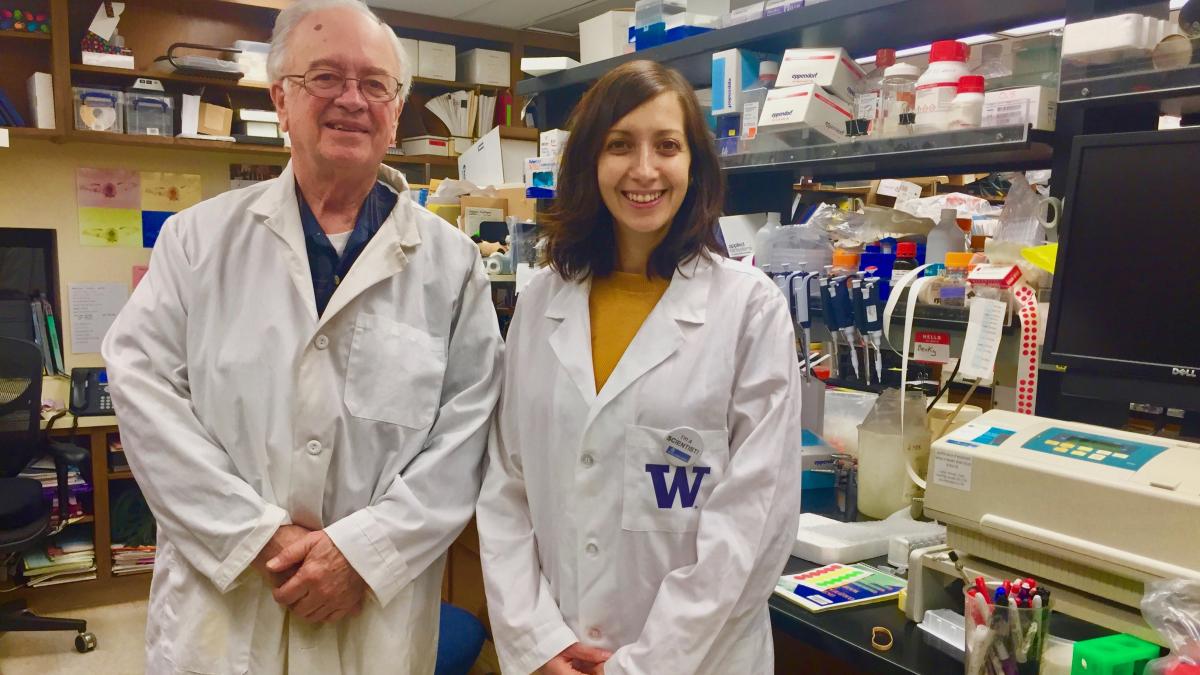
Dr. Judit Marsillach (right) will head to Winston-Salem, North Carolina next month to participate in the 2019 Data Innovation Lab.
In late June, Dr. Judit Marsillach of Project Three will travel to Winston-Salem, North Carolina to join an interdisciplinary team of early career biologists and computer scientists to work on issues related to rural health.
In March, Marsillach noticed an announcement for the 2019 Data Science Innovation Lab in the Superfund Research Program’s e-Posted Notes. She applied and was delighted to find out recently that she had been accepted. Now she has her tickets, her green program tee-shirt, and is eager to meet the rest of her team.
The hope of the Data Science Innovation labs is to form interdisciplinary teams to use pre-existing datasets from rural communities to help improve their public health.
While acceptance into the program did not require experience in rural health, Marsillach has worked with Dr. Clement Furlong on pesticide exposure in agricultural workers and says she understands many of the issues they face. “Often these workers don’t live close to big cities where they can access health resources or even information about occupational hazards associated with their work,” Marsillach explained. At the same time many agricultural workers are exposed to a cocktail of different hazardous substances.
When Marsillach arrives in Winston-Salem, she will be assigned to a team of other investigators with varied backgrounds and styles of teamwork. “I’m excited and a bit nervous,” admitted Marsillach. “I know I will be out of my comfort zone and hope that will open doors to start new collaborations or co-develop grant applications.”
The Data Science Innovation Lab program is funded by the National Institute of Health Big Data to Knowledge (BD2K), a trans-National Institute of Health initiative that supports the development of innovative approaches to integrate big data into biomedical research.

